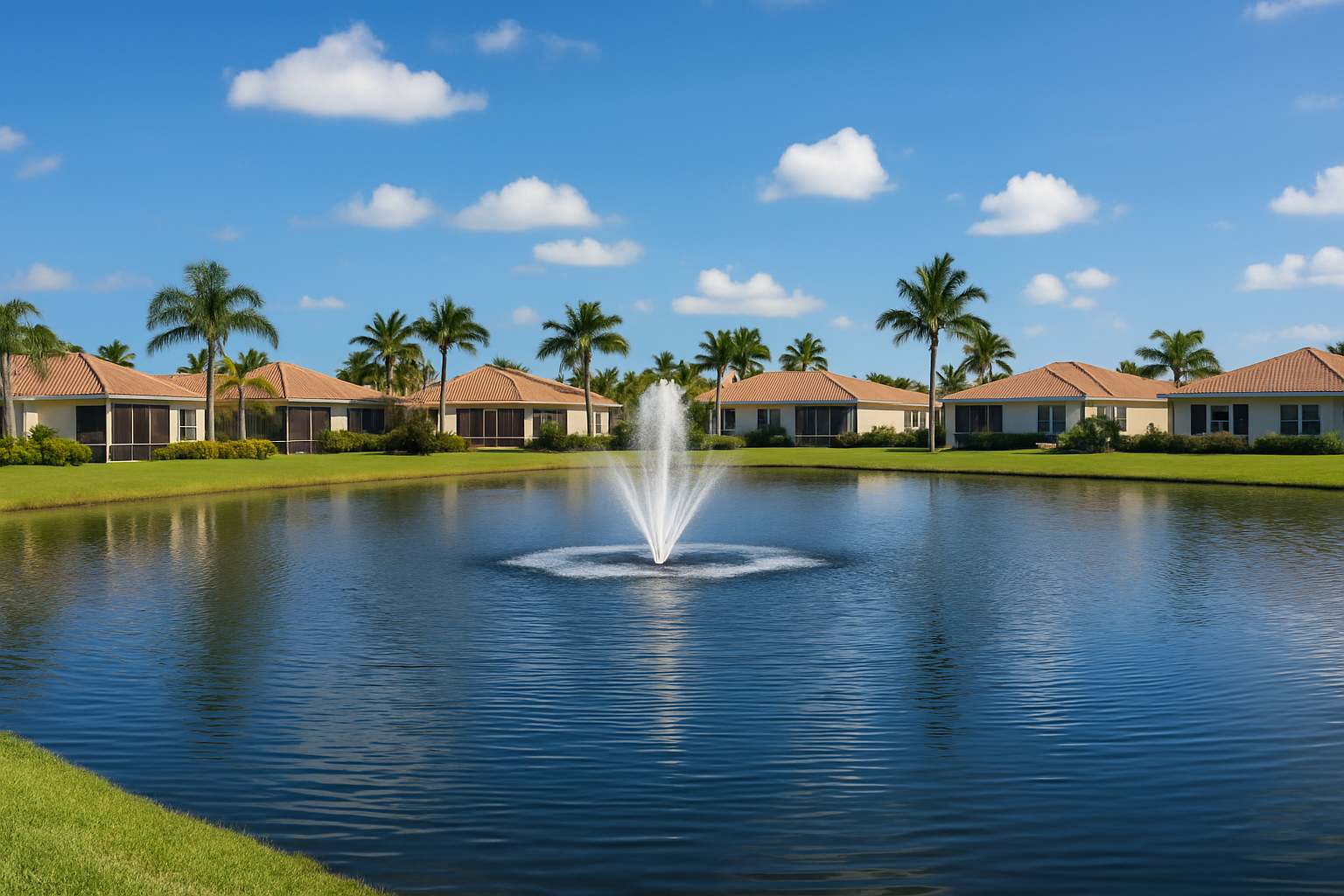Copyright © Kaloop 2025 All Right Reserved
Smart Lake Management: Enhancing Community Associations and Property Value

Written by Heidi Hensell
September 8, 2025
Table of Contents

Water features such as lakes or ponds in community associations aren’t merely decorative—they bolster property values, community satisfaction, and environmental health. Effective lake management is therefore an essential responsibility for HOAs and COAs, ensuring these assets remain appealing, safe, and sustainable.
Why Lake Management Matters
Most community lakes are man-made and require ongoing attention to avoid issues like algae blooms, erosion, invasive species, foul odors, or poor water quality. These problems can impact resident enjoyment, reduce property desirability, and even pose health or ecological risks.
According to ecological improvement experts, consistent lake and pond maintenance—such as vegetation control, aeration, shoreline stabilization, and muck removal—leads to improved water clarity, healthier aquatic ecosystems, and prolonged infrastructure lifespan, all while enhancing curb appeal and property value.
Key Benefits of Managed Water Features
Partner with Professionals
Collaborate with lake and pond management experts who can tailor strategies for water quality, vegetation control, and shoreline protection.Adopt Annual Management Plans
Regularly scheduled services, including aeration and monitoring nutrient levels, keep the water ecosystem balanced and minimize dependency on chemical treatments.Engage Residents in Ecosystem Care
Encourage responsible fertilizer use, proper pet waste disposal, and mindful landscaping to reduce nutrient runoff and protect water quality.Monitor & Plan Long-Term
Conduct water quality testing and establish long-term strategies that address evolving environmental needs—whether recreational, habitat preservation, or aesthetic goals.
Conclusion
Lake management is not a luxury, but a strategic necessity for community associations. Through proactive, ecologically sound practices and resident collaboration, boards can ensure their water features remain attractive, safe, and sustainable. Over time, these efforts pay dividends in property value, community pride, and environmental stewardship.


